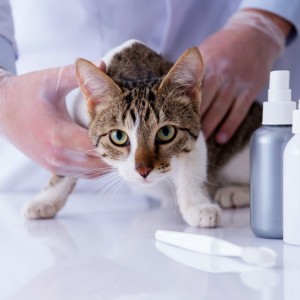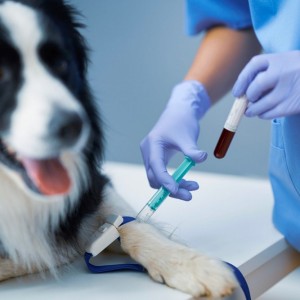Epicondylar plate fixation of humeral condylar fractures in immature French bulldogs: 45 cases (2014-2020)
Objectives: The objective of this study was to report outcome and postoperative complications following stabilisation of humeral condylar fractures in skeletally immature French bulldogs with a transcondylar screw combined with locking or hybrid locking plates.
Materials and methods: Medical records from one referral hospital were reviewed to identify skeletally immature French bulldogs with humeral condylar fractures treated with a transcondylar screw and epicondylar locking or hybrid locking plates crossing the distal humeral physis.
Results: Forty-five fractures in 41 different dogs with a mean age of 4 months (range 3.5 to 5) were identified. Six cases had complications: two (4.4%) minor and four (8.9%) major. Short-term clinical outcome was excellent in 35 (77.8%), good in nine (20%) and poor in one (2.2%) case. Forty-one of 45 fractures reached radiographic union without further surgical intervention; the remaining four cases reached union following revision surgery. Long-term owner assessed outcome by telephone interview was graded as excellent in all available cases (26 of 41 dogs).
Clinical significance: This study suggests that the stabilisation of humeral condylar fractures in skeletally immature French bulldogs with combinations of a transcondylar screw and epicondylar locking or hybrid locking plates crossing the distal humeral physis was safe and led comparable outcomes and complication rates to previous reports.
The stabilisation of humeral condylar fractures with transcondylar screw/epicondylar locking plates led comparable outcomes and complication rates to previous reports.
E Kvale, I Kalmukov, L Grassato, S Kalff, M Solano
https://onlinelibrary.wiley.com/doi/10.1111/jsap.13484











List
Add
Please enter a comment